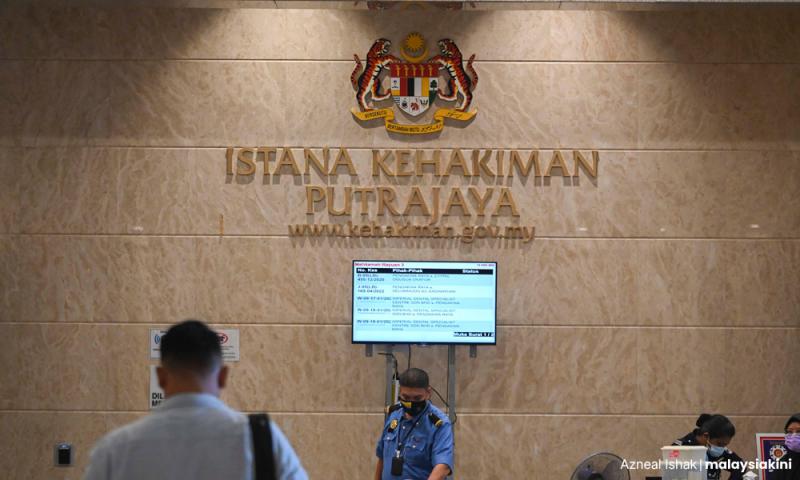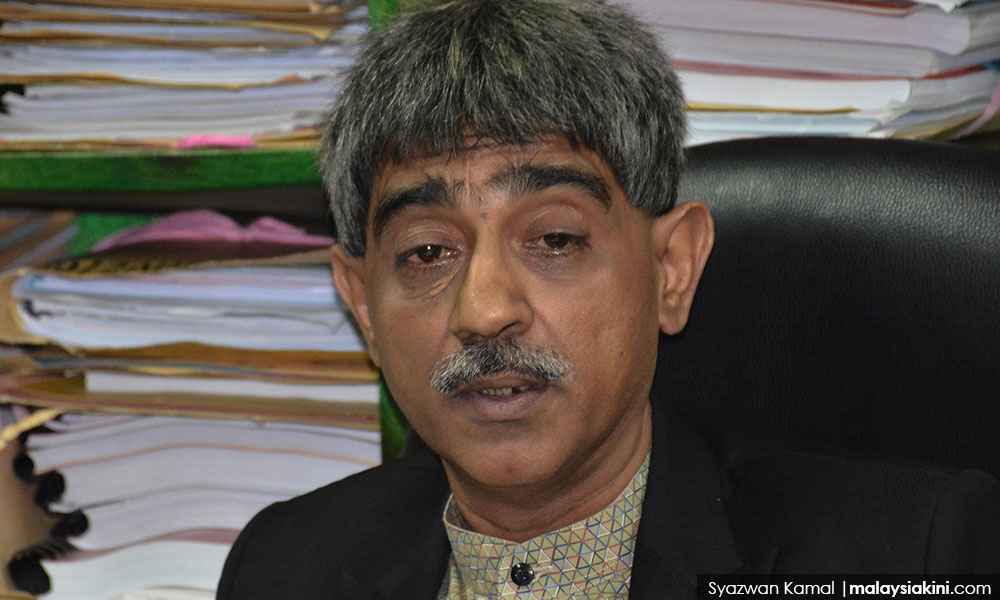
Court of Appeal upholds vernacular schools' legality
Mandarin and Tamil language vernacular schools will continue to operate with constitutional validity in Malaysia.
A three-person Court of Appeal bench chaired by Supang Lian this morning unanimously dismissed the appeal by Islamic Education Development Council (Mappim) and three other NGOs which challenged the schools’ legality.

The other three appellants are the Confederation of Malaysian Writers Association (Gapena), Ikatan Muslimin Malaysia (Isma) and Ikatan Guru-Guru Muslim Malaysia (I-Guru).
In reading out the ruling on behalf of the bench, judge Azizul Azmin Adnan pointed out that the framers of the Federal Constitution had intended from the very beginning that pre-Merdeka vernacular schools would continue to operate with constitutional validity after independence in 1957.
Azizul said this is reflected in Article 152(1)(b) of the Federal Constitution, which empowered the federal government to sustain and safeguard the utilisation of Mandarin and Tamil as mediums of instruction in vernacular schools.
He also said the provision has the effect of “grandfathering” the use of other languages at the time of the proclamation of Merdeka, due to the words “preserve and sustain”.
The provision states that "The national language shall be the Malay language and shall be in such script as Parliament may by law provide, provided that nothing in this clause shall prejudice the right of the federal government or of any state government to preserve and sustain the use and study of the language of any other community in the Federation".

"Nothing in Article 152 should be read to limit the use of language (like Tamil and Mandarin as medium of instructions in vernacular schools) and should sustain its continued use.
"If there is accepted use of language other than Malay as a medium of instruction in schools that existed before Merdeka, the government thus preserves and sustains such use.
"It cannot be argued that the framers of the Constitution intended that schools that use language other than Malay are unlawful.
"Otherwise, such schools would have been abolished with the establishment of the Federal Constitution (that became the supreme law of Malaysia upon Merdeka in 1957)," Azizul said on behalf of Supang and fellow bench member M Gunalan.
Azizul noted that the appellate bench disagreed with the NGOs contention that the existence of national-type vernacular schools infringed the fundamental liberties enshrined in the Federal Constitution.
He was referring to the NGO’s claim that the establishment and existence of vernacular schools violated constitutional rights provided by the Federal Constitution, such as the right to life and personal liberty (Article 5), equality before the law (Article 8), freedom of speech, assembly and association (Article 10), freedom of religion (Article 11) and right to education (Article 12).
He added that it was not the role of the judiciary to look into matters of government policy, such as education.
“The effects of the education policy are matters relating to the policy of government and the manner in which those policies are implemented.
“Even if those policies run contrary to whatever may be perceived to be a desirable outcome, for example, if it is argued that the existence of the national type schools has contributed to the increased polarisation of society, it would be quite beyond the pale for the courts to intervene.
“As correctly pointed out at the High Court, it is not the role of the courts to review the policies of the government.
“The policy and intent of Parliament are simply aids to the court in interpreting legislation, and in the context of the present case, to determine whether the legislation in question is inconsistent with the terms of the Federal Constitution, as alleged by the plaintiffs,” Azizul said.
He, however, made no order as to costs due to the matter being of public interest.
‘Next stop, Federal Court’
When met by the media at the lobby of the Palace of Justice in Putrajaya after the open-court proceedings, lawyer Mohamed Haniff Khatri Abdulla said an appeal would be filed at the Federal Court.
Haniff is acting for Mappim and Gapena. Counsel Mohd Khairul Azam Abdul Aziz appeared for Isma while lawyer Ramesh NP Chandran acted for I-Guru.
Senior federal counsel Liew Horng Bin represented the education minister and the federal government, who are among the numerous respondents targeted by the four NGOs' appeal.
The four NGOs were appealing against two separate civil court rulings that dismissed their legal challenges over the constitutionality of vernacular schools.

Mohamed Haniff Khatri Abdulla
On Dec 29, 2021, Kuala Lumpur High Court judge Mohd Nazlan Mohd Ghazali - who has since been elevated to the Court of Appeal - dismissed the lawsuits brought by the Federation of Peninsular Malay Students (GPMS), Mappim, Gapena and Isma. GPMS did not appeal.
Nazlan ruled that the establishment and existence of vernacular schools and their use of Mandarin and Tamil languages were constitutional.
On May 29 last year, Kota Bahru High Court judicial commissioner Abazafree Mohd Abbas also ruled that the existence of vernacular schools was constitutional and dismissed the suit filed by I-Guru.
On Dec 29, 2021, Kuala Lumpur High Court judge Mohd Nazlan Mohd Ghazali - who has since been elevated to the Court of Appeal - dismissed the lawsuits brought by the Federation of Peninsular Malay Students (GPMS), Mappim, Gapena and Isma. GPMS did not appeal.
Nazlan ruled that the establishment and existence of vernacular schools and their use of Mandarin and Tamil languages were constitutional.
On May 29 last year, Kota Bahru High Court judicial commissioner Abazafree Mohd Abbas also ruled that the existence of vernacular schools was constitutional and dismissed the suit filed by I-Guru.
Must follow Indonesia and Thailand.
ReplyDeleteEventually they will succeed.
ReplyDeleteShould the Sikhs, Malayalees, Sindhis, Bengalis, Punjabis, Thais, Javanese, Cantonese, Hakka, Hokchiu, and many more ethnic people set up their own schools? We must be fair to all. Hapuskan ketuanan Cina mandarin dan Tamil.
ReplyDeleteMfer, it's time to repatriate u back to yr f*cked homeland!
Delete